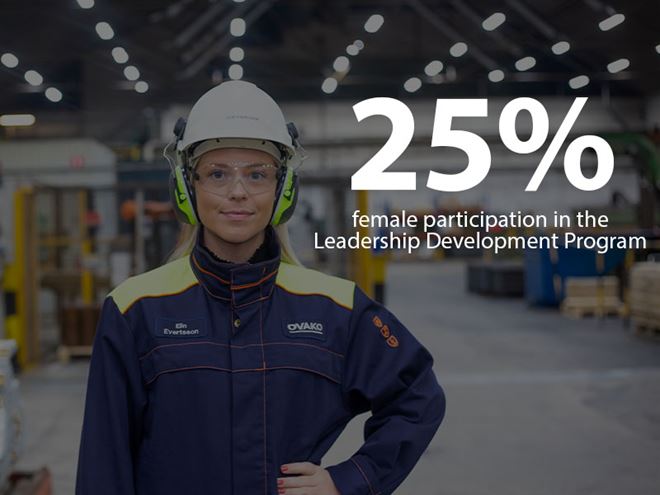Our co-workers are Ovako’s most important asset. For us, it is primarily about finding the right skills for the right role at the right time. The steel industry is traditionally male-dominated, and Ovako works continuously to increase the number of women among its employees. Today on the International Women’s Day, Ovako’s EVP Group HR, Communication & EHS Phetra Ericsson shares her thoughts on what the industry can do to attract more women.
Highlighting how the steel industry has changed
The modern steel industry is very different from how it used to be. It has historically been male-dominated given that production was heavy and demanded a lot of physical strength, but with today’s technology and the large investments that have been made in health and safety, there are roles in the industry for everyone.
We engage in a number of ways at Ovako to raise awareness. This includes close collaborations with schools, colleges, universities and other educational institutions in order to contribute in the long term to a more open sector, with more even gender distribution. These collaborations allow us to invite school classes on study visits and encourage schools to talk more about the steel industry.
Phetra Ericsson, Ovako’s EVP Group HR, Communication & EHS


Requirements for the recruitment process
In order to successfully identify the right skills for the right role it is important that the groups selected for the recruitment process are steeped in diversity, with both men and women represented.
Ovako always requires that our external recruitment companies present both female and male candidates for our positions.
The importance of leadership
Gender equality, as well as zero tolerance to all forms of discrimination and harassment, must be clearly manifested and prioritized by the leadership. Without clear commitment to these issues, it would be impossible to achieve good routines for gender equality.
Ovako’s leadership development program, which has 25 % female participation, allows us to create an understanding of the responsibility of every manager to work with issues such as inclusion, discrimination and different types of harassment. These efforts must always, and under all circumstances, be etched into everyday life at Ovako and create a culture in which we dare to challenge habitual behaviors and preconceptions.
